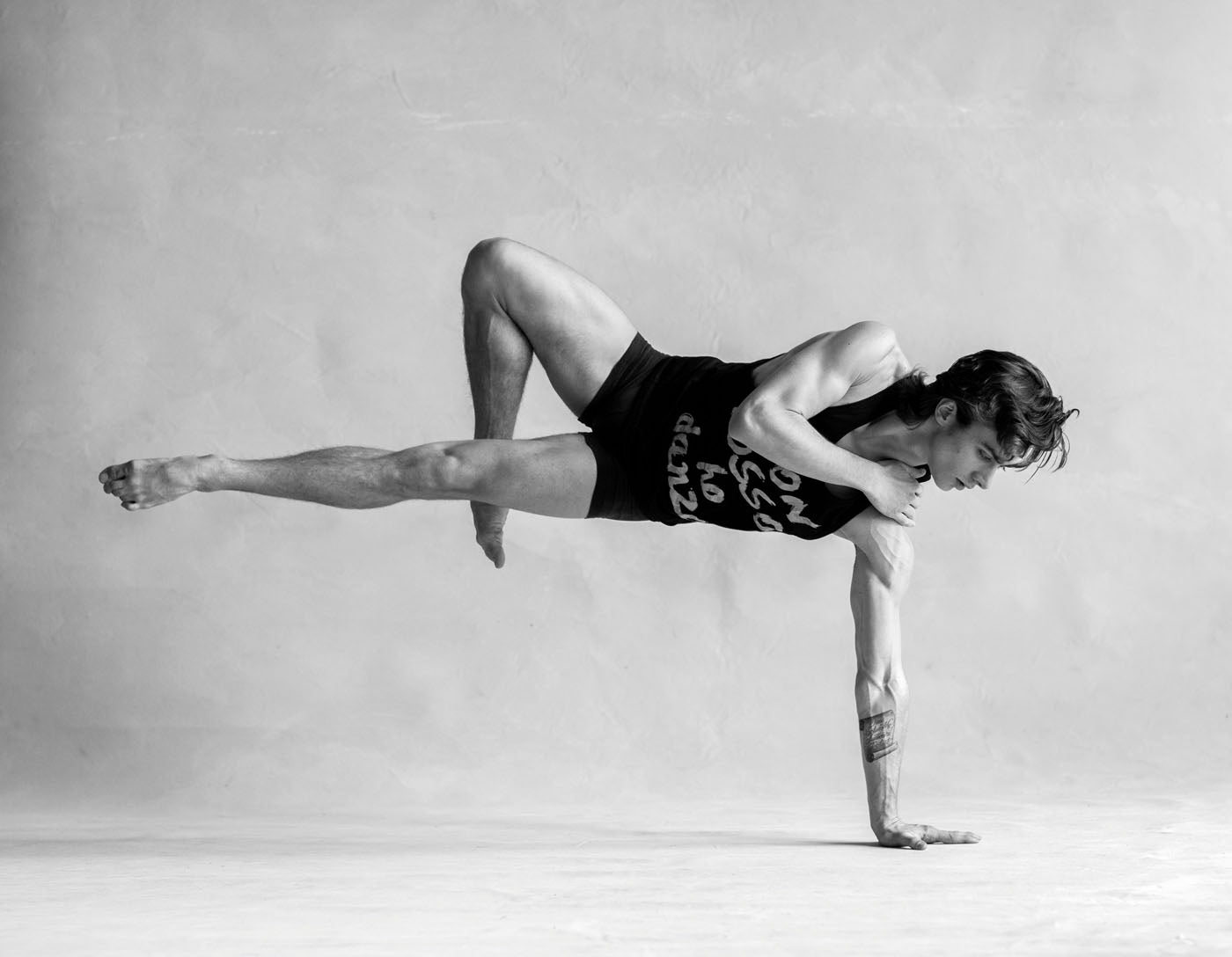With both parents former ballet dancers and directors of Professione Danza Parma, a dance academy in northern Italy, Frola was introduced to the studio at an early age. He studied ballet at Professione Danza until his mid-teens, nevertheless, a career on stage was not a given. “They [his parents] were really open-minded, they didn’t force me. I played soccer until I was 16.”
It wasn't until he accepted a scholarship to the School of the Hamburg Ballet that a career as a dancer for the blue-eyed Italian became apparent. If this approach sounds casual, it's working for him. A distinct pause greets my question about challenges that face him in dance. “That’s a good question,” he says with a smile.
“I dance because I like it, so I don’t think I have a challenge, because it’s not so important. . . . In life, there is other stuff . . . that’s more important.
But for the 23 year old, and confessed stage animal, rehearsals can be taxing. “A lot of rehearsal is a challenge. Because you train so much to do so little.” But, he adds, “I don’t think I could be doing something else.”
Following his year in Hamburg, Frola trained at Mexico’s Fomento Artistico Cordobés school, before joining the National Ballet as an apprentice in 2010.
In 2008, Frola competed in the Prix de Lausanne, the renowned pre-professional dance competition held annually in Lausanne, Switzerland. He made the semi-finals. “In [the Prix de] Lausanne, if you don’t get to the final, they have a big audition, and all the directors are there,” he explains, “if the director liked you, they put a little sign on your paper, and you get to talk to them.”
Lindsay Fischer, principal ballet master of the National Ballet, was in attendance, and ear-marked the young Frola. Being 17, Frola had originally elected to attend ballet school for another year. Fischer, however, offered him an apprenticeship: “It’s like school, but paid! And I was 17, so you know.”
From Mexico City, his beloved “second home,” Toronto was a change of pace. “Another funny thing: Everything is so perfect here. The government gives you money, papers. . . for an Italian person, it’s too much! I need some problems just to have something to think about when I go home.”
So far, so good: last year, while still a member of the corps, Frola was tapped to dance several principal roles, attracting praise from the critics and winning over audiences with his charismatic performances.
In a breakout year, he danced Mercutio in “Romeo and Juliet,” Lescaut in “Manon,” and Prince Florimund in “The Sleeping Beauty.”
His debut as Prince Florimund was almost waylaid: “I was supposed to dance with Elena [Lobsanova], but she got injured at the last minute.” But the company assured him he would get his debut. Principal dancer Svetlana Lunkina stepped in to dance Aurora.
But his most memorable, and favourite, performance was dancing the title role in “Nijinsky,” John Neumeier's ode to the legendary dancer. “Nijinsky” premiered with the Hamburg Ballet in 2000, and has since been a coveted ballet, debuting at the National Ballet in 2013. Admittedly a subject of some fixation for Neumeier, the ballet highlights Nijinsky's genius as well as his mental fragility, and details his tragic decline.
The role struck a chord with Frola; demanding not only an intensely physical performance with leaps sending him flying across the stage as though shot from a cannon, but an emotionally charged one as well. “I like when there is a role where people get, not crazy, but they are different. Well, they are a little bit crazy.”
Frola's promotion to first soloist was announced at the end of season company party. An avid soccer fan, Frola cites soccer stars and musicians amongst those who inspire him. “I get inspired a lot. By a lot of people. If I have to choose a person in ballet it would be Carlos Acosta.”
Not incidentally, Acosta, before he was the ballet megastar of today, travelled to Turin on a cultural ballet exchange, sharing the stage with Frola's parents.
“He is one of those people who can just walk on stage, and it doesn’t matter what he does.”
While Frola's repertoire is diverse, spanning classical and contemporary roles alike, his heart lies with the classics. “I really like classical ballet, so I kinda want to do that more.” Bravura calls—“I would like to do “Don Quixote” one day; that’s my favourite ballet so I would love to do it.”
In March, Frola will dance James, the young Scottish farmer, in the romantic stayer, “La Sylphide,” opposite the company's newest principal, Jurgita Dronina, former principal dancer of the Royal Swedish Ballet and Dutch National Ballet.
In the mixed programme, featuring the company premiere of Alexander Ekman’s “Cacti,” Frola will dance lead roles in George Balanchine's iconic “Rubies” and “The Four Temperaments.” Frola will dance the second theme, Sanguinic. I suspect, for the rising star, the requisite sense of euphoria and optimism will be no challenge at all.









comments